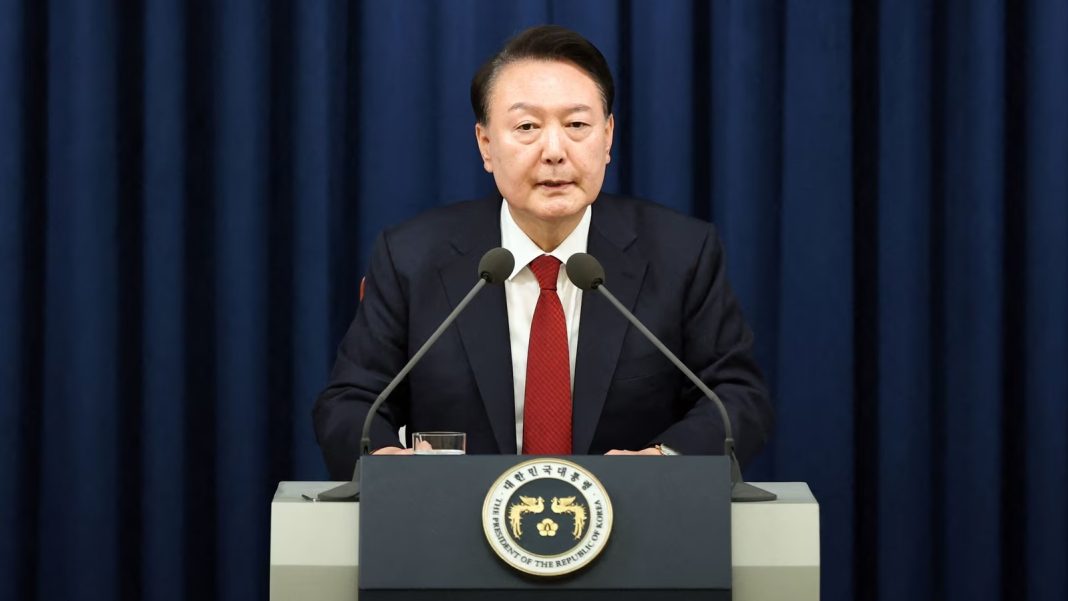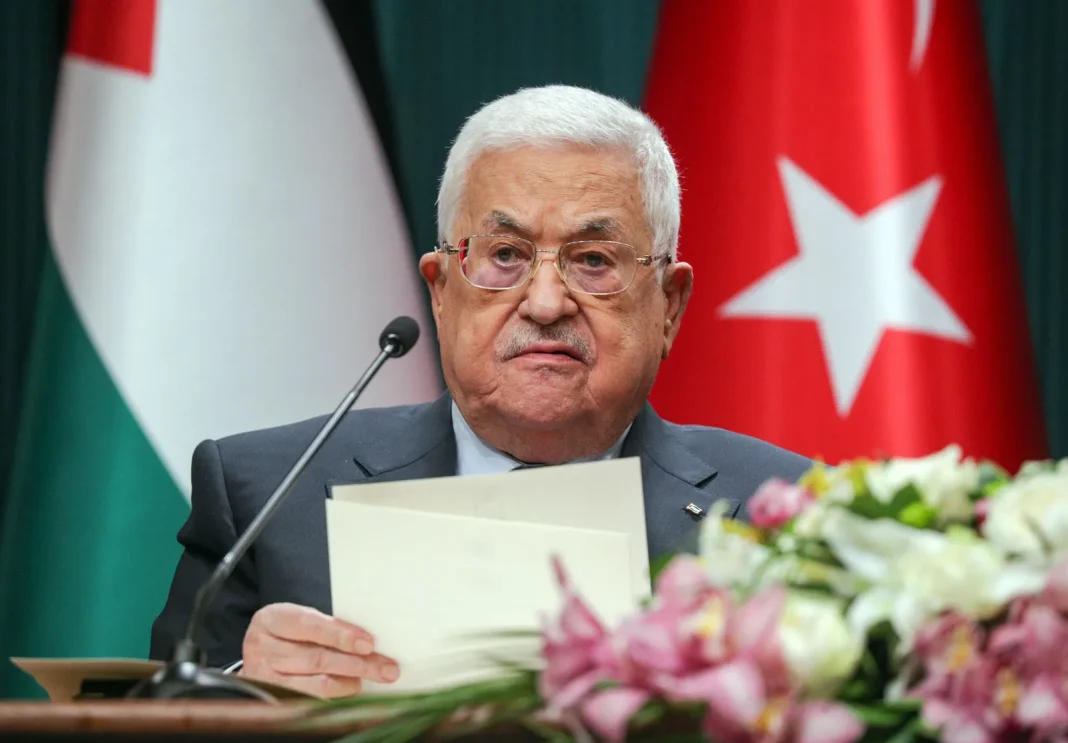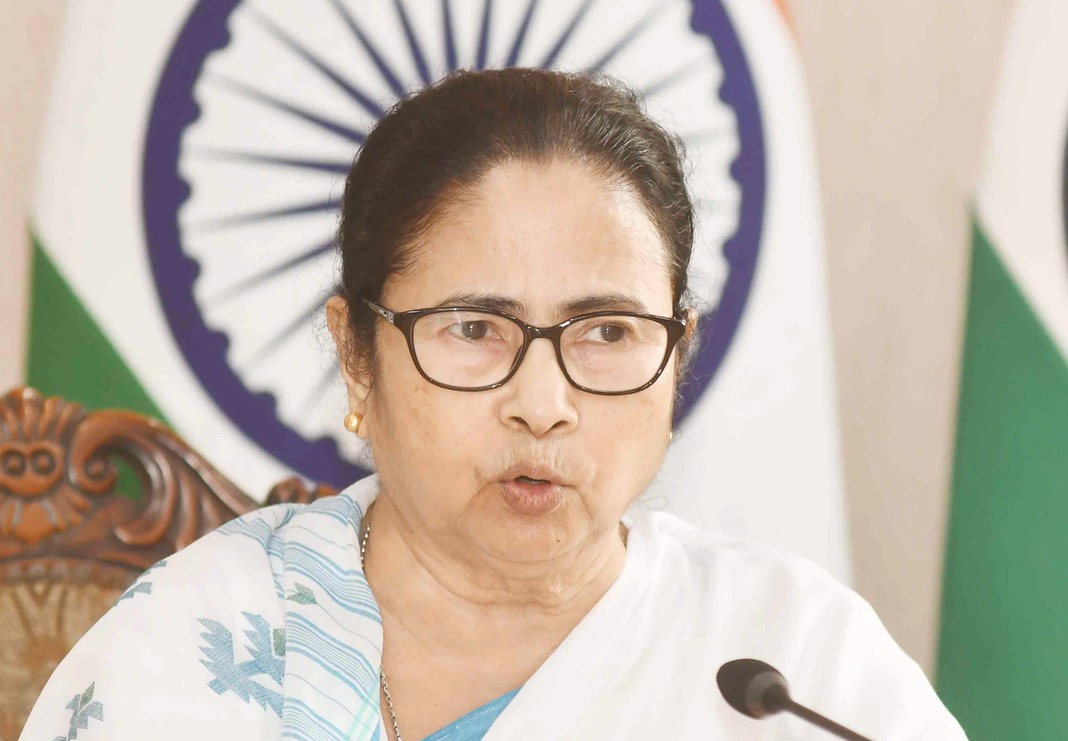Seoul, Jan 27: South Korean prosecutors on Sunday indicted impeached President Yoon Suk Yeol on rebellion in connection with his short-lived imposition of martial law, a criminal charge that could incur the death penalty or life imprisonment if convicted.
This is the latest blow to Yoon, who was impeached and arrested over his Dec 3 martial law decree that plunged the country into political turmoil, shook its financial markets and hurt its international image. Separate from criminal judicial proceedings, the Constitutional Court is now deliberating whether to formally dismiss Yoon as president or reinstate him.
Yoon has become South Korea’s first president who has been indicted while in office. He will remain jailed and be escorted from a detention facility to a Seoul court for hearings in the trial, which is expected to last about six months.
Prosecutors said in a statement that they indicted Yoon on charges that he directed a rebellion when he imposed martial law. Investigative authorities have earlier alleged that Yoon’s imposition of martial law amounted to rebellion, because he staged riots with the purpose of undermining the constitution.
Yoon’s defence team lashed out at the indictment, calling it “the worst decision” by prosecutors who they say are trying to curry favour with political forces who want Yoon’s exit.
“Today’s indictment of the president will remain as a shame in the history of South Korean prosecutors that they cannot erase,” Yoon’s defence team said in a statement. “We stress once again that a president’s declaration of martial law can never be rebellion.”
Yoon has presidential immunity from most criminal prosecutions, but the privilege doesn’t extend to allegations of rebellion or treason. By law in South Korea, the leader of a rebellion can face a life sentence or capital punishment.
Yoon, a conservative, has steadfastly denied any wrongdoing, describing his declaration of martial law as a legitimate act of governance meant to raise public awareness of the danger of the liberal-controlled National Assembly, which obstructed his agenda and impeached top officials. During his announcement of martial law, Yoon called the assembly “a den of criminals” and vowed to eliminate “shameless North Korea followers and anti-state forces”.
After declaring martial law on Dec 3, Yoon sent troops and police officers to the assembly, but enough lawmakers still managed to enter an assembly chamber to vote down Yoon’s decree unanimously, forcing his Cabinet to lift it.
The martial law imposition, the first of its kind in South Korea in more than four decades, lasted only six hours. However, it evoked painful memories of past dictatorial rules in South Korea in the 1960s-80s when military-backed rulers used martial laws and emergency decrees to suppress opponents.
South Korea’s constitution gives the president the power to declare martial law to keep order in wartime and other comparable emergency states, but many experts say the country wasn’t under such conditions when Yoon declared martial law.
Yoon insists that he had no intentions of disrupting assembly work, including its floor vote on his decree and that deploying troops and police forces was meant to maintain order. But commanders of military units sent to the assembly have told assembly hearings or investigators that Yoon ordered them to drag out lawmakers to prevent them from overturning his decree.
Investigations on Yoon have intensified the country’s already serious internal division, with rival protesters regularly staging rallies in downtown Seoul.
After a local court on Jan 19 approved a formal arrest warrant to extend Yoon’s detention, dozens of his supporters stormed the court building, destroying windows, doors and other property. They also attacked police officers with bricks, steel pipes and other objects. The violence left 17 police officers injured, and police said that they detained 46 protesters.
Yoon earlier resisted efforts by investigative authorities to question or detain him. He then was apprehended on Jan 15 in a huge law enforcement operation at his presidential compound.
Leading Yoon’s investigation was the Corruption Investigation Office for High-Ranking Officials, but Yoon has refused to attend CIO questioning sessions since being detained, saying it has no legal authority to investigate rebellion allegations. The CIO has said that it can investigate Yoon’s rebellion allegation because it’s related to his purported abuse of power and other allegations.
The CIO handed over Yoon’s case to the Seoul prosecutors’ office on Friday and asked it to indict him on charges of rebellion, abuse of power and obstruction of the National Assembly. Prosecutors said they indicted Yoon only on rebellion, considering that Yoon had presidential immunity from other charges.
Yoon’s defence minister, police chief and several other military commanders have already been arrested on alleged rebellion, abuse of power and other charges related to the martial law decree.
If the Constitutional Court rules to drive Yoon out of office, a national election to choose his successor must be held within two months. Recent public surveys show that governing and opposition party candidates are running neck-and-neck in a possible presidential by-election race.(AP)




